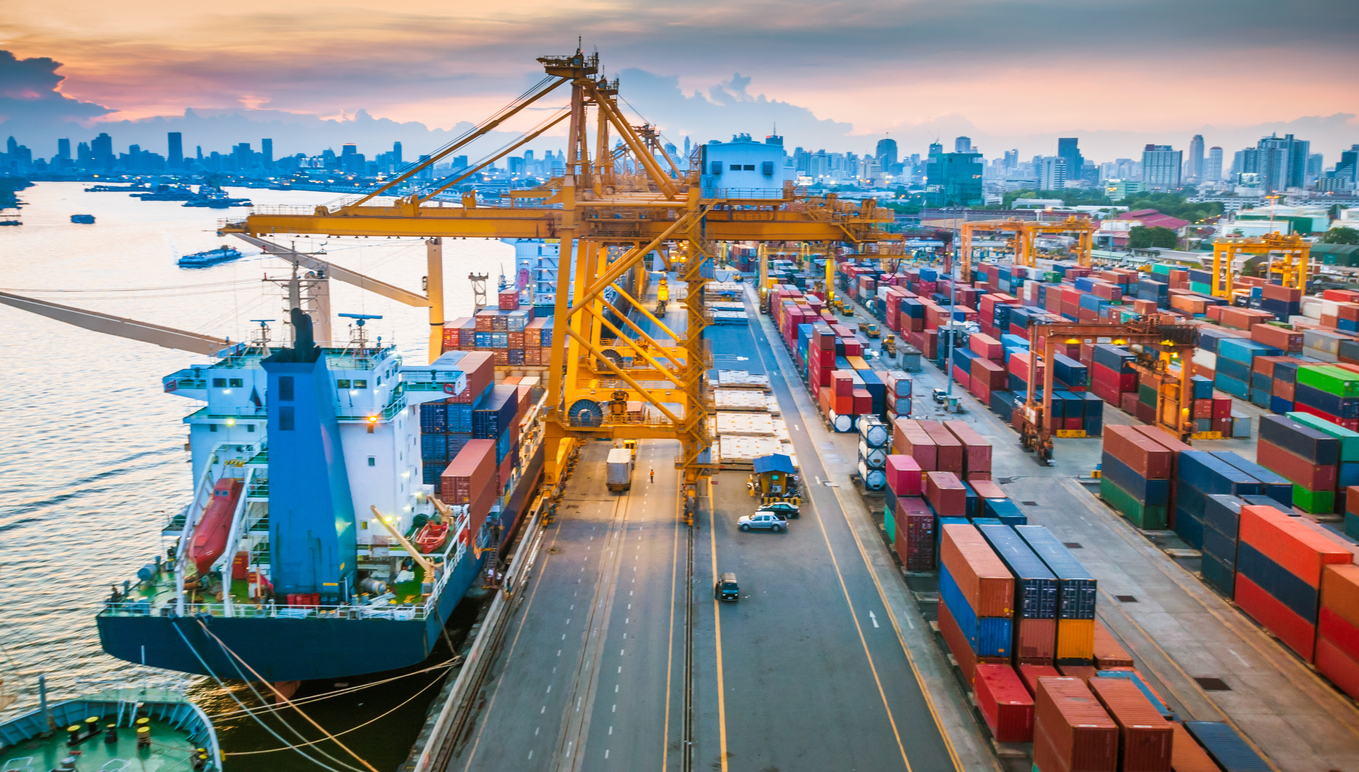A recent congressional investigation has raised concerns regarding certain Chinese-made cranes utilized at ports across the United States. These cranes have been found to contain communications equipment, specifically cellular modems, with no documented purpose or record of installation. The investigation, conducted by the House Committee on Homeland Security and House Select Committee on China, focused on over 200 Chinese-made cranes installed at US ports and related facilities. It revealed that the cellular modems, which enable remote communication, were not included in any contractual agreements between US ports and the Chinese crane manufacturer ZPMC. Additionally, during inspections conducted by US port personnel in China, it was discovered that these modems were already installed on the cranes. This revelation has heightened concerns that the cranes could potentially be utilized for surveillance or sabotage.
Representative Mark Green, the Republican chair of the House Homeland Security Committee, expressed alarm over the findings, stating that vulnerabilities in the cranes could enable the Chinese Communist Party (CCP) to undermine trade competitors through espionage and disrupt supply chains, thereby posing a significant threat to the nation's economy. ZPMC, in response, emphasized its commitment to providing high-quality products and services while adhering to applicable laws and regulations.
However, the Chinese Embassy in Washington, DC, dismissed the claims, labeling them as "paranoia" and denouncing the US for impeding normal economic and trade cooperation between the two countries. Ship-to-shore cranes play a crucial role in the movement of goods through US maritime ports, and the prevalence of Chinese-made cranes in these ports underscores the potential security implications. The Biden administration has announced plans to invest in new US-made port infrastructure to mitigate security risks associated with foreign-made equipment.
Experts caution that the presence of cellular modems in crane operational systems poses security risks, as they can bypass traditional IT security defenses. Efforts are underway to enhance security assessments and mitigate these vulnerabilities within critical maritime infrastructure.
BACKGROUND – 2023
The American Association of Port Authorities (AAPA) had issued a statement in response to last year’s media reports circulating regarding concerns over Chinese-manufactured cranes utilized in ports, which may pose potential security risks to the United States. Representing over 130 public port authorities across the US, Canada, the Caribbean, and Latin America, the AAPA has labeled these media reports as "alarmist" and "sensationalized." Moreover, AAPA has announced its intention to leverage the attention drawn to the industry to advocate for legislative measures aimed at revitalizing US manufacturing capabilities for cranes and other heavy port equipment.
The media frenzy surrounding this issue stemmed from a report published by The Wall Street Journal, citing unnamed "national-security and Pentagon officials" who likened the Chinese-manufactured cranes to a Trojan horse. The report raised concerns that these cranes, widely deployed in major American ports, could potentially serve as espionage tools for Beijing, given their sophisticated electronics. While questions have been raised about the possibility of China obtaining information about shipped materials or gaining remote access to ports, AAPA emphasized that modern cranes lack the capability to track cargo origins, destinations, or nature.
In response to The Wall Street Journal's report, the Chinese Embassy dismissed the allegations as "paranoia-driven," denouncing them as efforts to disrupt trade and economic cooperation. Additionally, government-controlled media in China characterized the accusations as part of an ongoing "delusion of persecution" among Americans. The genesis of these concerns appears linked to a clause inserted by US lawmakers into the December 2022 defense authorization act, mandating a study on whether foreign-manufactured cranes pose cybersecurity or national-security threats at American ports.
AAPA underscores its commitment to security and safety at all ports, citing ongoing efforts to identify and mitigate potential threats. Despite the absence of concrete evidence linking cranes to nefarious activities, concerns over Chinese companies continue to fuel anti-China sentiment, with ZPMC, the world's leading supplier of ship-to-shore cranes, facing intensified scrutiny. AAPA warns that hastily removing cranes from US ports without viable replacements would disrupt supply chains, inflate prices, and exacerbate inflation.
To address these challenges, AAPA announced its support for the "Crane Reshoring and National Enforcement of Supply Chain Security Act," aimed at revitalizing American production of port equipment. Further details on this initiative will be unveiled at a legislative summit organized by the association at the end of March.
At BlueSky, we offer our clients unparalleled access to analyst-verified monitoring, actionable intelligence, and proactive insights into protests and potential disruptions in real-time. Our commitment is to deliver intelligence that is not only insightful but also deeply rooted in human expertise. We pride ourselves on delivering intelligence that is insightful and human-centric, because "Our best intelligence is not artificial."
If you have additional questions about this report or would like more information on BlueSky, reach out to our team directly: BlueSky@paladinrisksolutions.com





